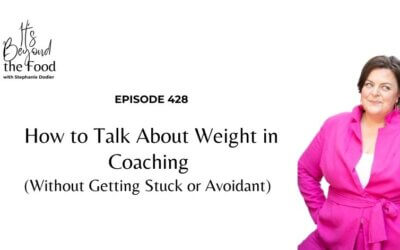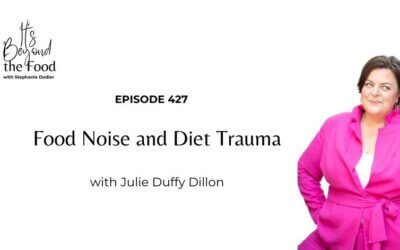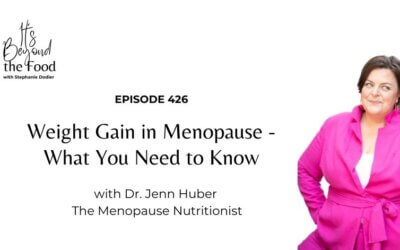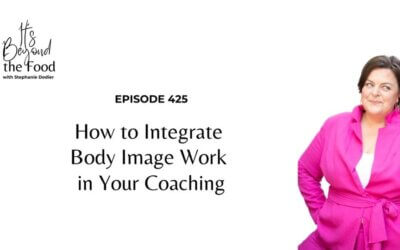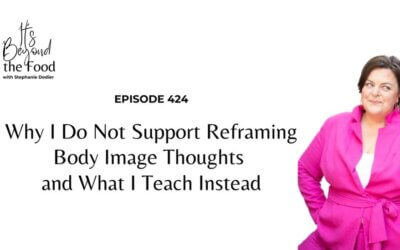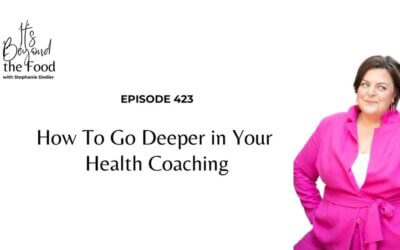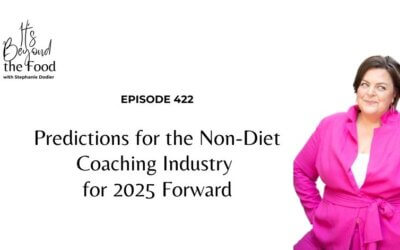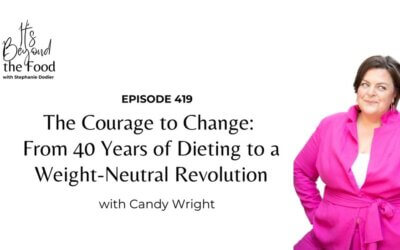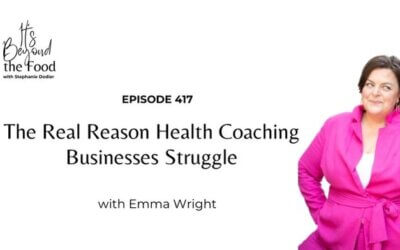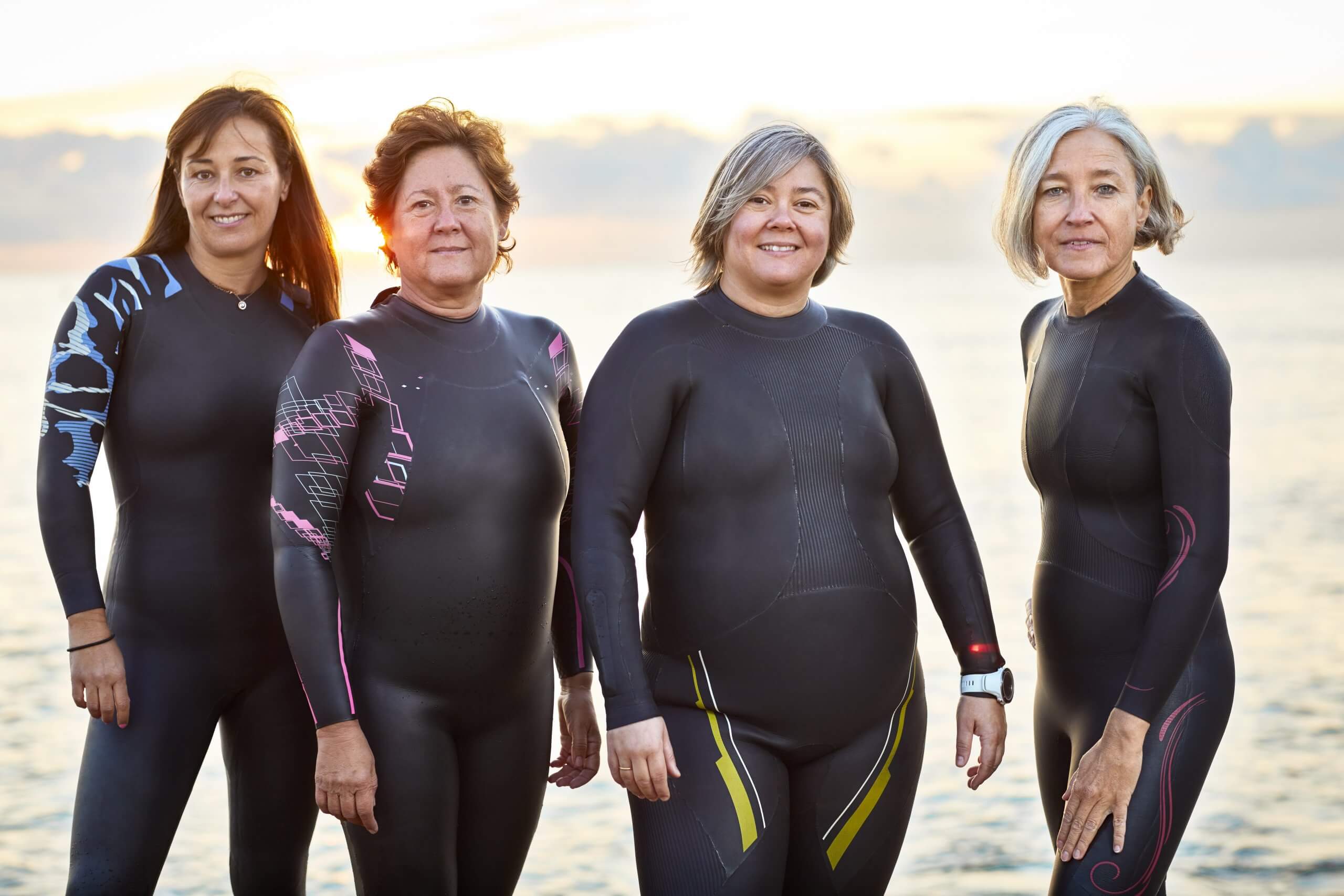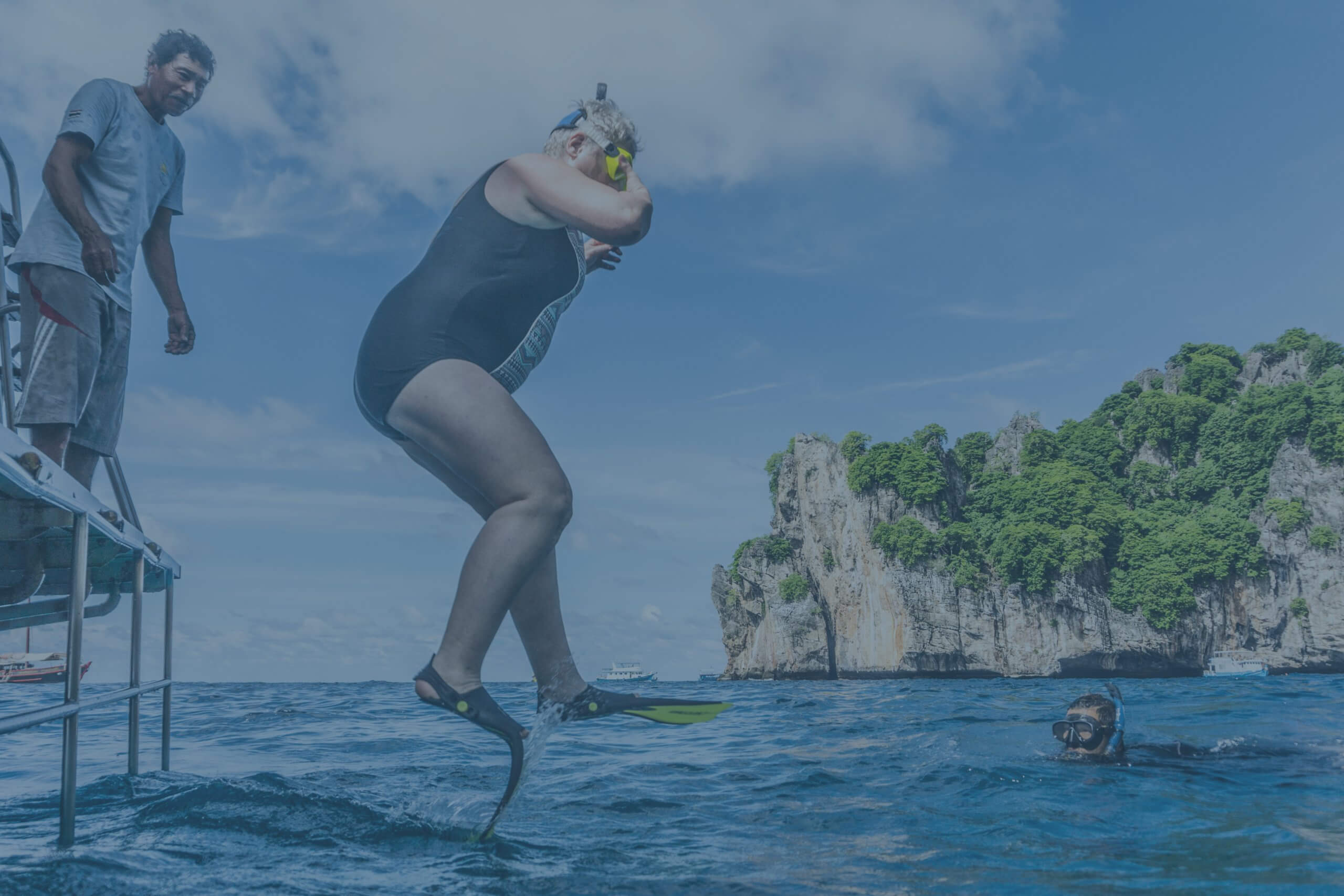THE NON-DIET COACHING PODCAST
It’s Beyond the Food Podcast
If you’re a coach, nutritionist, therapist, or health professional who wants to coach without diet culture—you’re in the right place.
Join Stephanie Dodier, Non-Diet Nutritionist and founder of the Non-Diet Coaching Certification, for real-talk episodes that help you coach behavior change, body image, and mindset—without making weight loss the goal.
You’ll get practical tools, evidence-informed frameworks, and behind-the-scenes insights to build your skillset and your business—ethically and confidently.
This is the podcast for weight-neutral professionals ready to stop winging it and start coaching with skill.
New episodes drop Mondays.
Over 1.4M downloads since 2016.
Subscribe to our podcast on your favorite podcast platform.
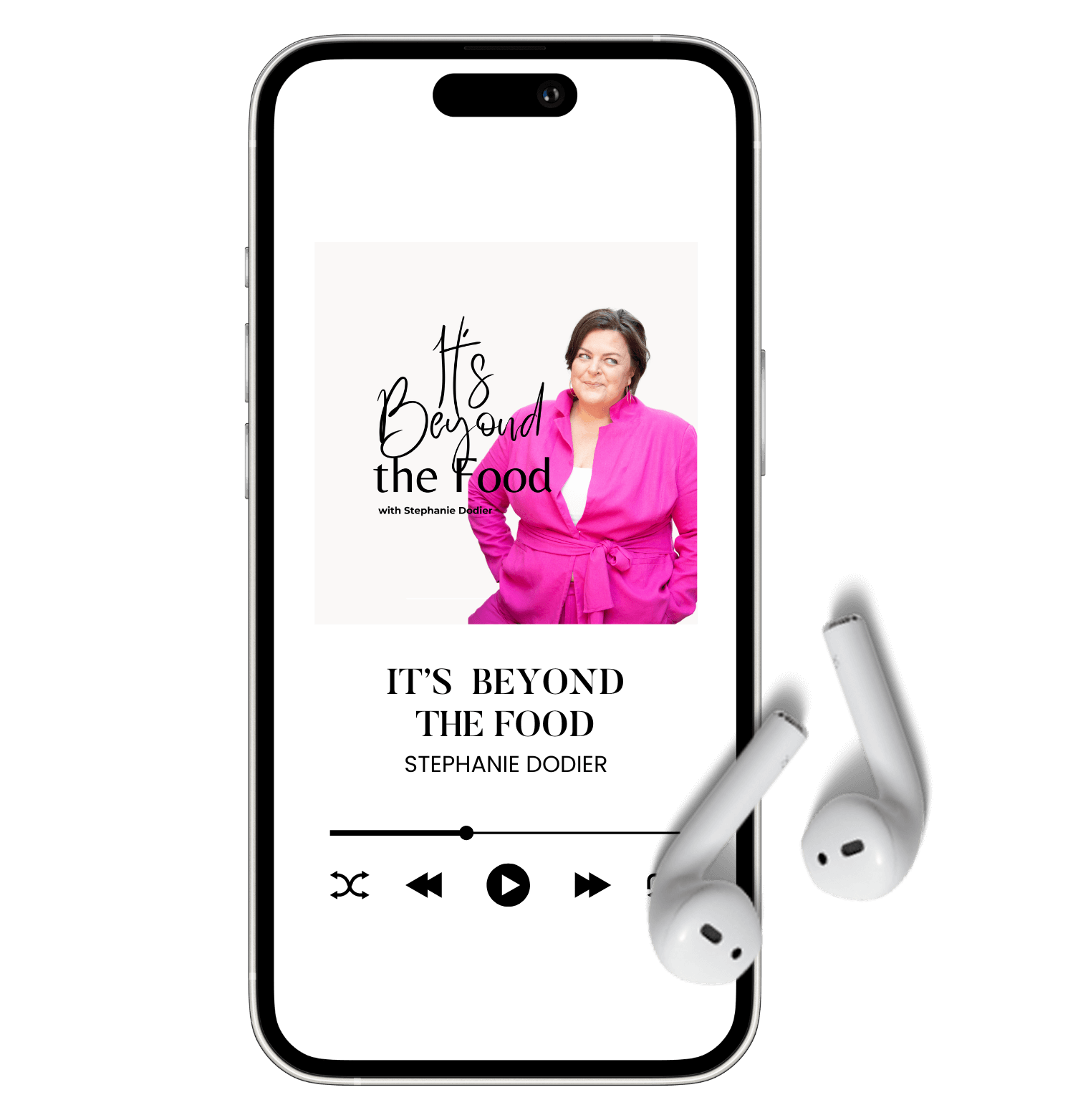

THE WELL-BEING FEMINIST PODCAST
It’s Beyond the Food Podcast
Join Non-Diet Nutritionist Stephanie Dodier and with each episode Stephanie will guide you on how to go beyond the food. You’ll get resources and tools to coach mindset, body image and weight neutral health while building a lifestyle & ethical coaching business.
It’s Beyond The Food podcast is a top rated podcast since 2016 with over 1.3 millions downloads.
Subscribe to our podcast on your favorite podcast platform.
Our Most Recent Episodes
428-How to Talk About Weight in Coaching (Without Getting Stuck or Avoidant)
How to Talk About Weight in Coaching without fear or avoidance. Learn 5 powerful steps to support clients through weight conversations.
427-Food Noise and Diet Trauma with Julie Duffy Dillon
Food Noises and Diet Trauma with Julie Duffy Dillon–How diet trauma fuels food noise and how to help clients heal without rigid rules.
426-Weight Gain in Menopause – What You Need to Know with Dr. Jenn Huber The Menopause Nutritionist
Weight gain in menopause is not a problem to fix. Dr. Jenn Huber helps us demystify the truth about hormones, muscle loss, and strength training.
425-How to Integrate Body Image Work in Your Coaching
How to integrate body image work in your coaching without overhauling your approach. Learn simple, effective strategies to support clients.
424-Why I Do Not Support Reframing Body Image Thoughts and What I Teach Instead
Many people believe that thought reframing is the key to healing body image...
423-How To Go Deeper in Your Health Coaching
How to go deeper in your health coaching with a simple 3-step model to help clients create lasting behavior change and real transformation.
422-Predictions for the Non-Diet Coaching Industry for 2025 Forward
Predictions for Non-Diet Coaching Industry in 2025 reveal key shifts in coaching, marketing, and AI. Learn to future-proof your business!
421-The Danger of Healthism and What Matters More Than Good Health
The Danger of Healthism lies in guilt, shame, and ignoring systemic barriers. Learn why health is a choice, not a moral obligation.
420-Weight Neutral Health Pros and Cons
As a non-diet nutritionist with 25 years of personal dieting experience, I've witnessed firsthand...
419-The Courage to Change: From 40 Years of Dieting to a Weight-Neutral Revolution – Coach Candy’s Story
From 40 Years of Dieting to a Weight-Neutral Revolution: Discover how Coach Candy transformed her approach to health and self-acceptance.
418-The Dark Side of Spiritual Healing with Meg Pearson
Spiritual Healing can mask harmful patterns. Discover how to embrace authentic, mindful practices for true, intentional healing.
417-Rewriting the Rules: The Real Reason Health Coaching Businesses Struggle (And How Emma Turned It Around) with Emma Wright
Health Coaching Business Struggle: when perfectionism & external validation take over. Learn how to build trust and resilience for success.

Welcome!
I’m Stephanie Dodier
I am a non-diet nutritionist, educator, and feminist business leader challenging everything we’ve been taught about food, health, and coaching.
I help health professionals confidently coach food and body without co-opting diet culture.
Join me in leading the health coaching revolution!
Ready? Let’s do this!
Free Assessment Tool
Let’s start coaching client with confidence
Use this free intake forms kit and evaluate your client with food, body image and mindset and set the foundation for transformative coaching relationships, rooted in trust and client empowerment.





